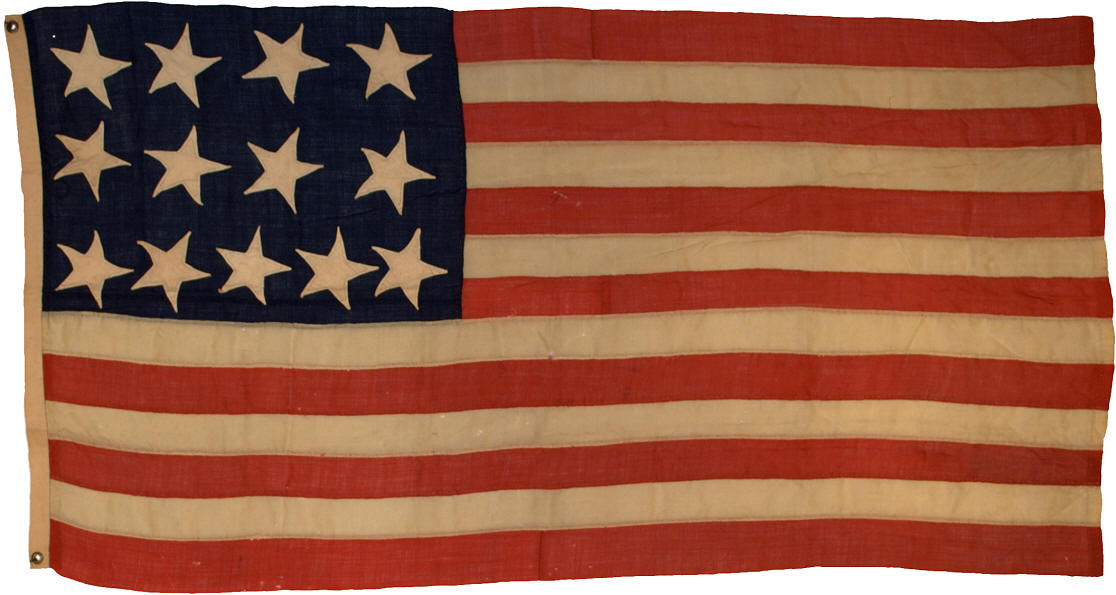|

Among the known
patterns of 13 star American flags, there are varying
degrees of rarity. The most common pattern is the
3-2-3-2-3 pattern, also known as the Hopkinson pattern
after Francis Hopkinson, who served on the committee
that proposed the design of the first American flag in
the Continental Congress in 1777. That is followed
by the 13 star medallion pattern, and the 4-5-4 pattern.
I would estimate that among antique American flags in
the 13 star count from any era pre-dating 1925, about
70% of them are 3-2-3-2-3, 20% of them are 13 star
medallions, 5% are 4-5-4 pattern, and the remaining 5%
of known antique examples are some other rarer pattern,
such as the Betsy Ross pattern (which is surprisingly
scarce), the Cowpens pattern, the Trumbull pattern, or
some other unique or nearly unique pattern. There
are just two flags that I know of in this very rare
4-4-5 pattern--this flag, and another that surfaced in
2014. The Smithsonian also notes a 4-4-5 example that
was examined in 1972, though I have not seen photos of
the flag examined at the Smithsonian and I don't know if
it the same as one of the two that I know of.
This flag is
particularly beautiful and in fine condition. It
is entirely hand sewn with very large and folky
single-appliqué stars. The flag is made of wool
bunting with cotton stars and a cotton hoist.
Three of the red stripes are pieced together. The
quality of the flag is exceptional, and indicative of a
manufactured flag made by one of several outfitters and
mercantile companies such as Horstmann Brothers or
Leighton & Pollard that produced flags in the 1860-1880
period. It is very closely related in style,
construction, and age to at least three other flags in
the Rare Flags collection: a 13 star example (IAS-00109)
made by the company of Leighton & Pollard, circa 1870, a
12 star example (IAS-00316),
and a 15 star example (IAS-00317).
All four flags are hand sewn, have large single-appliqué
stars that dance and fill up the canton, and are made of
high quality wool bunting and fine cotton fabric.
Though this flag could date as early as the Civil War,
it could also date as late as the 1880's. Very few hand
sewn single-appliqué flags were made during or after the
1890s. Given the strong similarities between this flag
and IAS-00109, which dates clearly to circa 1870 based
on the company history of Leighton & Pollard, I'm
confident that this flag also dates to the same time
period. At just 38" x 70", the flag is beautifully
proportioned and considered small for the era, whereas
most sewn flags of this period were more than 8 feet in
length. It is an extraordinary rarity among
antique American flags.
|

